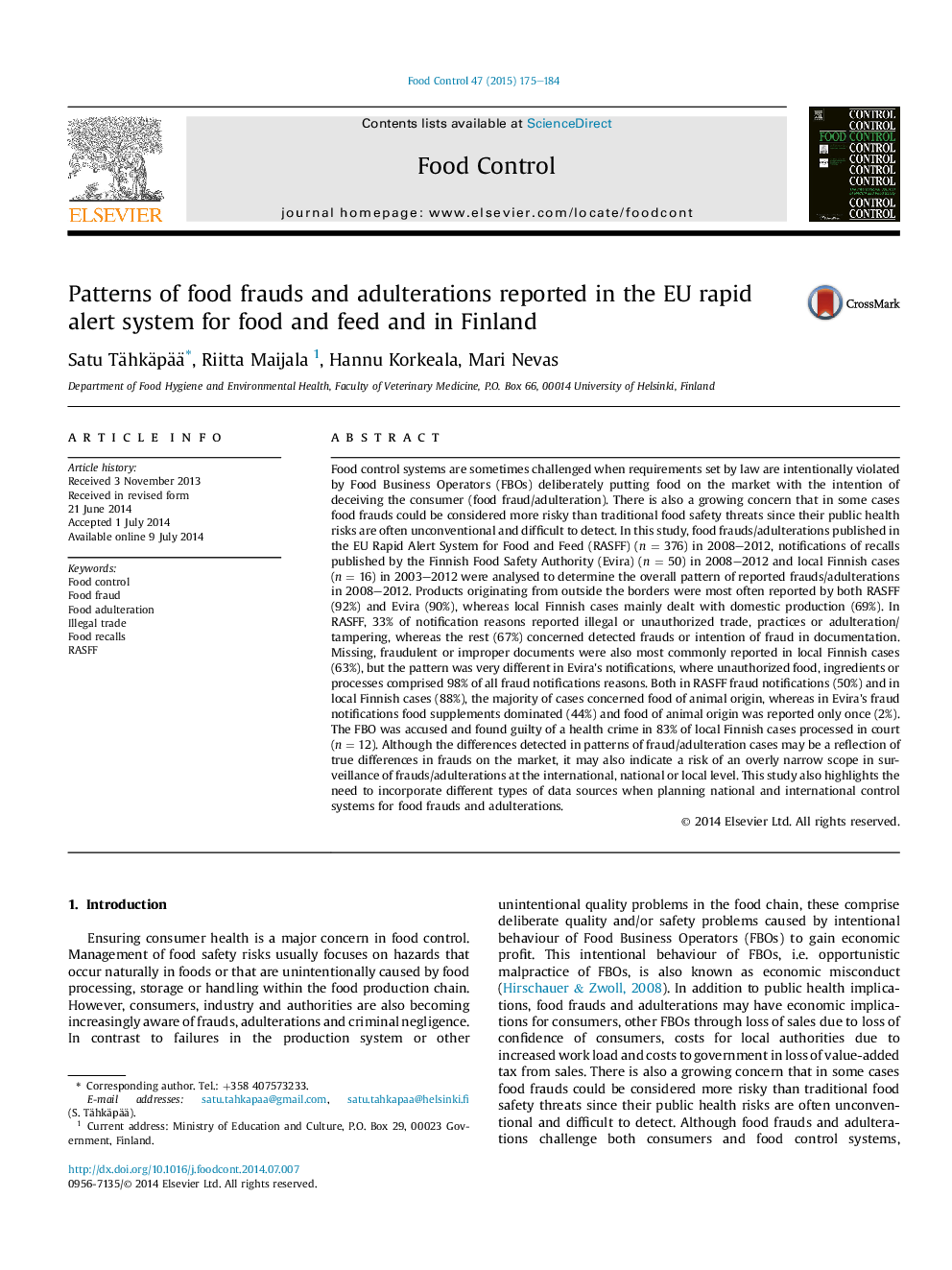| کد مقاله | کد نشریه | سال انتشار | مقاله انگلیسی | نسخه تمام متن |
|---|---|---|---|---|
| 6391363 | 1628415 | 2015 | 10 صفحه PDF | دانلود رایگان |
- Products of animal origin dominate reported food fraud cases.
- False, improper or missing labels/documents are most common fraud type.
- Food fraud cases are rarely taken to court proceeding in Finland.
Food control systems are sometimes challenged when requirements set by law are intentionally violated by Food Business Operators (FBOs) deliberately putting food on the market with the intention of deceiving the consumer (food fraud/adulteration). There is also a growing concern that in some cases food frauds could be considered more risky than traditional food safety threats since their public health risks are often unconventional and difficult to detect. In this study, food frauds/adulterations published in the EU Rapid Alert System for Food and Feed (RASFF) (n = 376) in 2008-2012, notifications of recalls published by the Finnish Food Safety Authority (Evira) (n = 50) in 2008-2012 and local Finnish cases (n = 16) in 2003-2012 were analysed to determine the overall pattern of reported frauds/adulterations in 2008-2012. Products originating from outside the borders were most often reported by both RASFF (92%) and Evira (90%), whereas local Finnish cases mainly dealt with domestic production (69%). In RASFF, 33% of notification reasons reported illegal or unauthorized trade, practices or adulteration/tampering, whereas the rest (67%) concerned detected frauds or intention of fraud in documentation. Missing, fraudulent or improper documents were also most commonly reported in local Finnish cases (63%), but the pattern was very different in Evira's notifications, where unauthorized food, ingredients or processes comprised 98% of all fraud notifications reasons. Both in RASFF fraud notifications (50%) and in local Finnish cases (88%), the majority of cases concerned food of animal origin, whereas in Evira's fraud notifications food supplements dominated (44%) and food of animal origin was reported only once (2%). The FBO was accused and found guilty of a health crime in 83% of local Finnish cases processed in court (n = 12). Although the differences detected in patterns of fraud/adulteration cases may be a reflection of true differences in frauds on the market, it may also indicate a risk of an overly narrow scope in surveillance of frauds/adulterations at the international, national or local level. This study also highlights the need to incorporate different types of data sources when planning national and international control systems for food frauds and adulterations.
Journal: Food Control - Volume 47, January 2015, Pages 175-184
